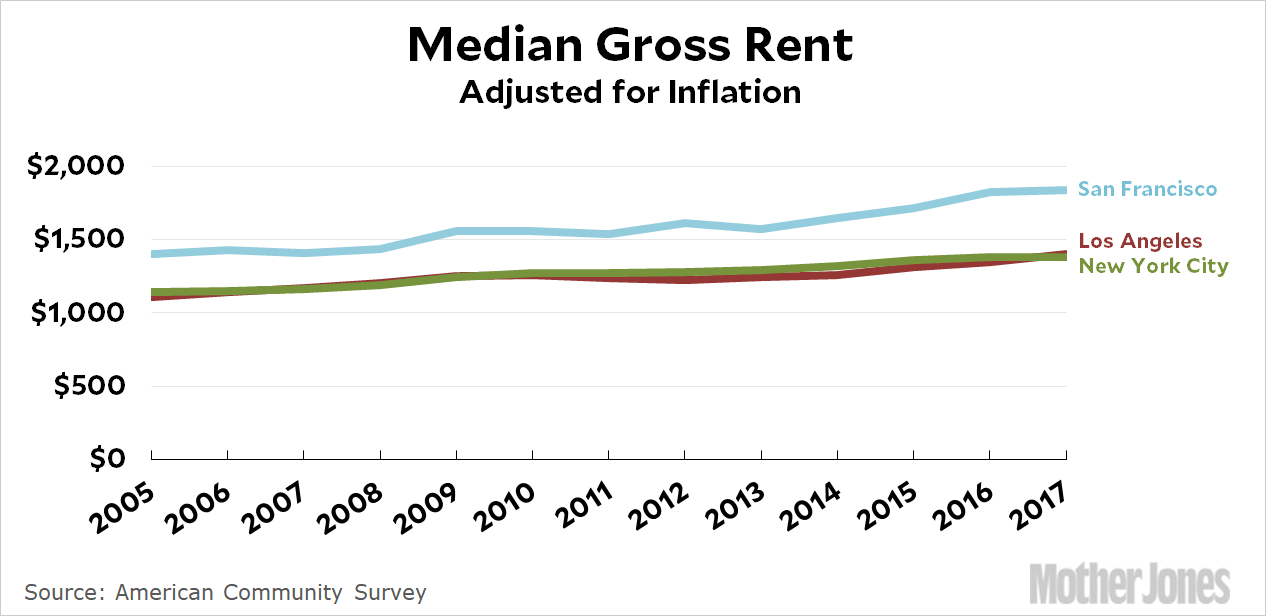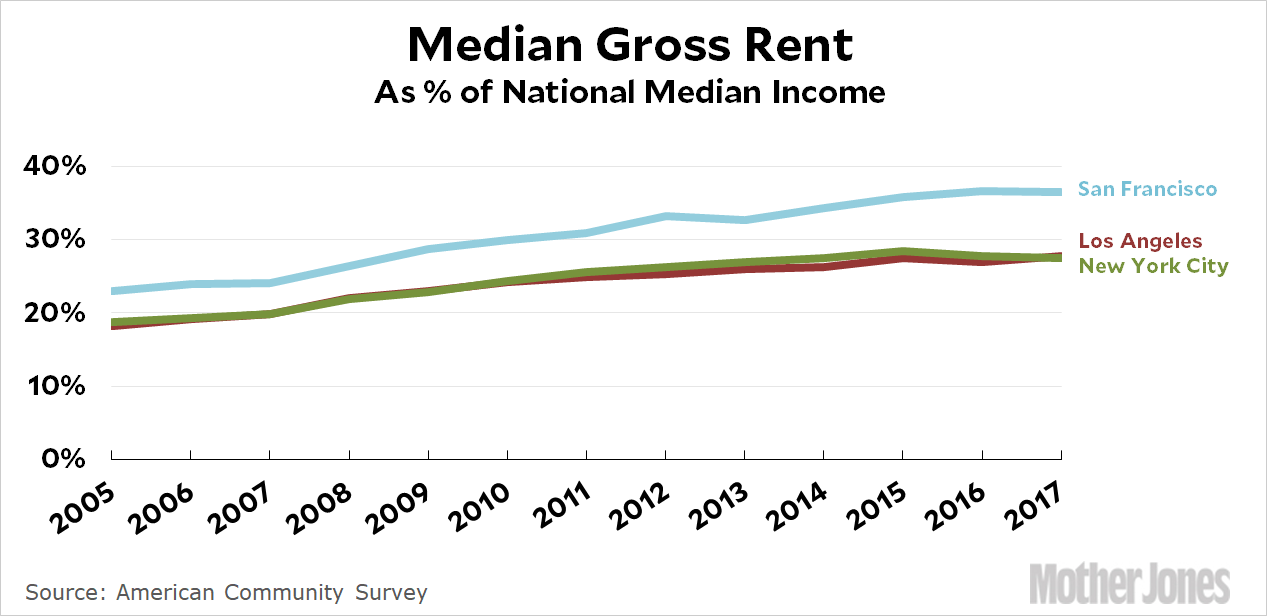The LA Times has an interesting op-ed today about housing prices. It’s written by a professor and student pair at UCLA who say that estimates of housing prices are generally much higher than reality:
The inflated numbers come from private firms such as Zillow, Reis, Apartment List and other real estate brokerage firms, which generate data that are often cited by reporters and political candidates. But the data from these firms, while accurate for their individual listings, can be wildly inaccurate measures of overall price levels because they are based upon only part of the market.
Sensibly enough, they recommend using figures from the Census Bureau’s American Community Survey instead. I didn’t know the ACS tracked this, but indeed they do. For example, here is average rent since 2005 in the Big Three expensive cities:

That…doesn’t look so bad. I used gross rent just because it was easy, but the ACS also allows you to search, say, for 2-bedroom apartments or by the year the structure was built. Generally speaking, though, the UCLA folks are right: most pieces I read about housing in big cities suggest that a typical apartment in San Francisco will set you back $3,000 or more. But apparently not.
On the other hand, if you look at rent as a percentage of income, things are a lot worse:

The ACS provides this directly, but instead I did this chart by hand using national median income, not median income in each city. After all, median income in big cities is artificially high because only people with high incomes can afford to live there, which skews the picture in a way that’s not easy to fix. Instead, this chart shows, on average, what percentage of your income it’s likely to cost you if you decide to move to one of these cities. It also shows that rent as a percentage of income in big cities has increased by about 10 percentage points. That’s because median income hasn’t grown much over the past couple of decades.
These are very basic charts that I threw together just out of curiosity. If you want to be more careful, you can eliminate things like extremely low rents charged to family members or you can look only at rents for newly occupied apartments. If you do both of these things, median rents increase by about $300.
I don’t have any big point to make here. I just thought the data was interesting. Here’s how the op-ed concludes:
We agree that rent affordability in California is a real problem. After adjusting for inflation, median rents in California are about 50% higher than they were in 1980. This is partly because the average quality of housing is much higher today than it was 40 years ago….Housing prices have also risen because of the severe restrictions in many parts of the state on new construction — in other words, there is a housing shortage. High rental prices mean that even among households with incomes above $30,000, nearly a third devote more than 30% of their income to rent.
The best response to the affordability problem is a matter of legitimate debate. But thoughtful debate must start with accurate data.
Fair enough.
POSTSCRIPT: There’s no point in yelling at me in comments about how you live in one of these cities and these figures are obviously wrong. Go yell at the Census Bureau. But before you do, keep in mind that my readers and their circle of friends tend to have higher than average incomes and live in more expensive than average neighborhoods. So that probably biases your view of the rental market.














